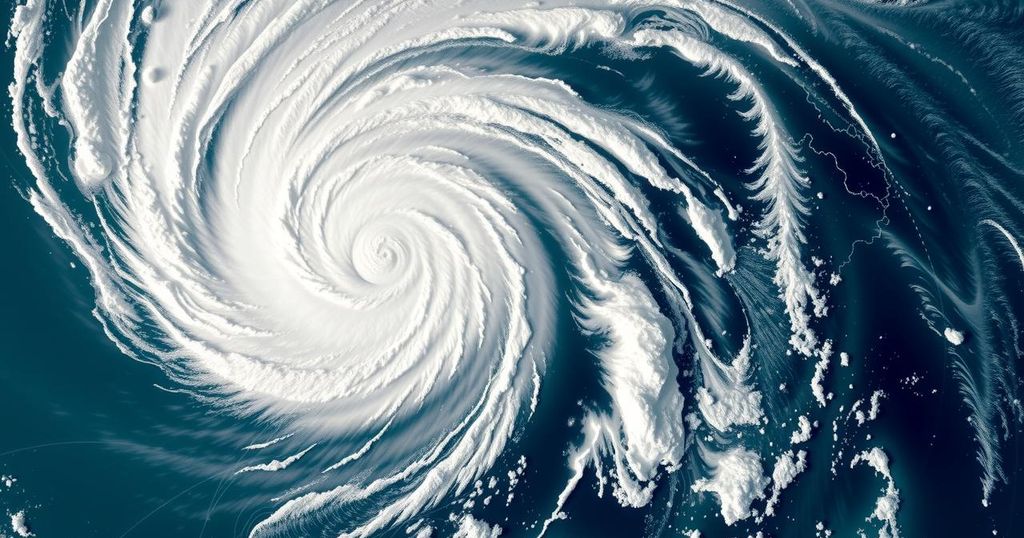Cyclone Chido Brings Urgent Threat to Comoros, Madagascar, and Mozambique

Cyclone Chido is approaching Comoros, Madagascar, Mayotte, and Mozambique, threatening with strong winds up to 200 kph. Authorities are closing schools and evacuating residents, particularly in Madagascar’s Diana region. The cyclone could cause severe flooding and landslides, exacerbated by climate change impacts, urging communities to take precautionary measures.
A powerful tropical cyclone, designated Cyclone Chido, is advancing toward the islands of Comoros, Madagascar, Mayotte, and the African mainland, particularly Mozambique. This formidable storm is expected to deliver severe winds and significant rainfall, thereby posing a considerable threat to the surrounding areas. In anticipation of Cyclone Chido’s landfall, Comoros authorities have enacted the closure of schools, as the storm is forecasted to impact the islands this coming Saturday. The French territory of Mayotte is currently in a state of high alert, with the French national weather service having issued a red alert for the region.
In Mozambique, a similar response has been initiated with the issuance of a red alert for the northern provinces of Cabo Delgado and Nampula. This warning affects over two million residents who may be in harm’s way when Cyclone Chido reaches the mainland. Forecasts from the Mozambique National Meteorological Institute predict wind speeds of up to 200 kilometers per hour (124 mph) upon landfall. Madagascar is also preparing for the cyclone, with public alerts advising residents to take proactive measures against the impending storm. Evacuations are currently underway in the northern region of Diana, which is anticipated to experience the most severe impacts of Cyclone Chido, and authorities have begun distributing food and emergency supplies to vulnerable areas since Tuesday.
Moreover, the French government is mobilizing resources to assist Mayotte in mitigating potential cyclone-related damages. Emergency personnel and equipment are being dispatched to the region to bolster rescue and recovery operations. It is essential to note that climate experts have expressed concerns regarding the increasing intensity of cyclones in this region, attributing this trend to climate change. Cyclone Chido could result in catastrophic flooding, landslides, and outbreaks of waterborne diseases such as cholera, dengue fever, and malaria.
As the cyclone season progresses, it is paramount for residents to remain informed and heed warnings, taking all necessary precautions to safeguard their lives and well-being against the impending natural disaster.
Cyclones are powerful weather systems characterized by rotating winds and significant rainfall, often resulting in widespread destruction and disruption. The current cyclone season in the Indian Ocean region has raised alarms among citizens and officials due to the increasing frequency and intensity of such storms. This phenomenon has been linked to climate change, which contributes to the development of stronger tropical storms. Cyclone Chido is a manifestation of this unsettling trend, underscoring the urgent need for preparedness and resilience among affected populations.
In summary, Cyclone Chido poses a significant threat to Comoros, Madagascar, Mayotte, and Mozambique, prompting urgent safety measures and evacuations in affected areas. The cyclone’s potential for destructive winds and heavy rainfall has led to the issuance of red alerts and school closures, while authorities prepare for emergency responses. The impact of climate change on storm intensity continues to be a pressing concern, emphasizing the necessity for communities to remain vigilant and proactive during this cyclone season.
Original Source: www.inkl.com






